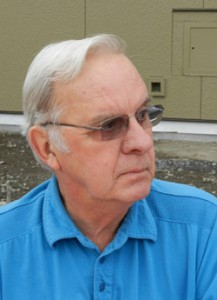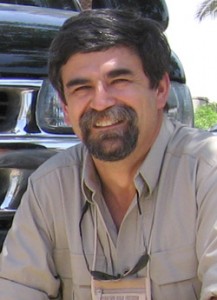Editor’s note: Our Town reporters Don Murtha and Brenna Wiegand interviewed several people about their memories of Sept. 11, 2001 when commercial jets commandered by terrorists took down the twin towers in New York City, smashed into the Pentagon, and crashed in a field in Pennsylvania. For some, like Marta Stovin, it continues to be a painful memory that is difficult to discuss. For others, it stirs deep emotions but the memories are softened by the actions of people coming together to support and assist one another.
MARTA STOVIN IN NEW YORK
For Marta Stovin, 9/11 destroyed her hopes for a career on Broadway and dragged her through emotional turmoil that stayed with her long afterward.
She was on the last subway train that left the Twin Towers. The next subway train was crushed – along with the people in it – by the rubble of the falling towers.
Stovin had been living in New York for two years working as assistant to the president of a clothing manufacturer and hoping for a job in a Broadway show. She lived on Staten Island and took the Staten Island ferry to Manhattan every day, then rode the subway to her job in Times Square.
Riding in on the ferry on that fateful Tuesday morning, she saw the first explosion on the Twin Towers. The following weeks were turbulent for her.
“I didn’t see the plane and I thought it was a gas explosion. Some people said that’s where they work and there was no point in going there so they went home,” she said.
She got on the subway train at Battery Park. The ride was strangely different. The train would stop in the subway tunnel in between its regular stops then go on.
“Then the conductor said something bad had happened above. He said we’re skipping the Twin Towers. Then the train raced away and didn’t stop,” she said.
She finally got to her job at Times Square that day and “the phones were ringing off the hooks. People wanted to know if so-and-so made it to work,” she said. “My boss said I should get out. I told him I had no place to go since I lived on Staten Island and couldn’t get there.”
Later her boss told her she could stay with his in-laws in their penthouse near Central Park.
“It was on the upper west side and I had to walk from 42nd Street 30 or 40 blocks,” she said.
“It was surreal. Normally Manhattan is jammed, but there wasn’t a car or a bus on the street. There was just a sea of people, all walking north away from the Towers with their eyes glazed over,” she recalled.
“Then I saw the real people of New York. I started talking with some people I never met and they said I could stay with them,” she said. “Since I already had a place to stay, I had to turn them down.”
She walked on to the apartment of her boss’ in-laws.
“They were well-to-do and very gracious people and I stayed with them for three days,” she said.
All of Manhattan was shut down.
“If you were on Manhattan Island you couldn’t get off. If you were off you couldn’t get on,” she said.
She was in the same clothes for three days and had no way to buy anything.
“Then my boss gave me a credit card to buy whatever I needed – clothes, batteries for my cell phone, toiletries and any other essentials,” she said.
She learned that trains were running intermittently from Penn Station and if you were there when a train was leaving.
“I was lucky. I was there at just the right time and caught a train to New Jersey.
“But I still couldn’t get to Staten Island because they suspected a terrorist was there and the whole island was shut down.” she said. “So I stayed with a friend in Edison, New Jersey.”
She rode the train from New Jersey to Penn Station to her job for many days.
When she finally was able to get back to Staten Island much later and ride the ferry to Manhattan the area, around Ground Zero had become a military exclusion zone under martial law.
“You had to show three pieces of ID to go through,” she said.
What she saw when she returned was emotionally devastating.
“There was dust and smoke and rubble everywhere for a long time. It was like a war zone,” she remembers.
“I walked through Ground Zero every day for weeks. It takes a toll on a person’s sanity.”
“You read about these things and see them on TV, but nothing can prepare you for actually being there,” she said.
To get to work she had to walk a mile and a half from the ferry to the nearest subway station to catch her train to Times Square. One day on her way home walking through the devastation she smelled something odd.
“It was a horrible smell and when I realized what it was I lost it,” she said. “I threw up.”
The smell was the decomposing dead under the rubble. She had to go through that daily on her way to and from work.
She was in touch with her parents, John and Pat Hazenkamp, in Silverton by phone regularly during the crisis.
At first her father pleaded with her to come home to Silverton, and then he insisted that she come home.
“Before the attack I was going to stay in New York. I didn’t want to go home. I loved New York,” she said.
“But fate had taken my future away.”
Just before Thanksgiving her father and her brother, John, drove across the country to Staten Island.
“We loaded up the SUV with what it would carry. The rest I gave away or just left it,” she said. “My brother flew home and I rode with my father back across the county to Silverton.”
Coming home was a depressing let down. She had come close to her goal of appearing in a Broadway show.
She had worked long and hard from an early age to become a professional dancer.
“I was in the final casting call for the show A Funny Thing Happened On The Way To The Forum and I expected to get a call the next day. The next day was Sept. 11 and that was the end. All of Broadway shut down.” Stovin recalled. “I felt like the rug had been pulled out from under me.”
“Eventually I got a job as a receptionist. It was a come down. I had been assistant to the president of a multimillion dollar business in New York,” she said “It took a long time to adjust from living in New York to a tiny town like Silverton,”
Later she began teaching drama at the YMCA. That went so well that she started her own business with a performing arts school in Silverton.
But her experiences on and after 9-11 have not left her.
“For a long time I wouldn’t talk about it. You have to have been in a war zone to know what it is like,” she said.
JERRY LAUZON IN MOUNT ANGEL
A surge of patriotism galvanized Mount Angel in the days following Sept. 11, 2001, as Jerry Lauzon remembers.
Lauzon said he first heard of the terrorist assault in a telephone call from his wife, Connie, while he was in
downtown Mount Angel.
“She said ‘we’re being attacked. Get to a television and see,” he said.
Lauzon, who was president of Oktoberfest at the time, said, “We came under tremendous pressure to stop Oktoberfest.” But, in the end, the decision was to go on with the festival.
“We decided that’s what the terrorists wanted was to shut down America. Calling off the festival was what the terrorists wanted,” Lauzon said. “We had to run the festival despite the terrorists.”
Expressions of sorrow came from unexpected sources.
“The band from Germany was already here. Those German guys came to me and expressed horror. They said they were practicing the American National Anthem and would play it at every
performance,” Lauzon said. “It was really emotional for me.”
The Marion County Citizens Band played a special concert of patriotic music on the grounds of St. Mary’s Church and other bands and choral groups performed special programs. We hung American flags all over town and it became a very patriotic festival,” he said. “It was magnificent effort despite the pain and sorrow in a very meaningful way.”
“It was very hard but everyone pulled together and people appreciated the fact that we carried on,” he said. Some good often comes out of tragic events, Lauzon said.
“The festival helped to soothe the souls of people and it helped them have some relief,” he said.
TOM BAUMAN WAITING FOR A PHONE CALL 
Tom Bauman remembers when Sept. 11 struck Mount Angel with a panic for three local families. Three MountAngel students were visiting the East Coast and unknown to their parents had just come from New York. The three were Bauman’s son Matthew, Patty Decock and Stephie Gerig, who was attending college in Pennsylvania.
“I was at breakfast and was unaware of the attack, “ Bauman said. A member of the Mount Angel City Council at the time, he got a call from Gwen Bielemeier, whose daughter was attendingcollege in Pennsylvania.
“She asked, ‘Where are the kids. Don’t you know what’s going on?’” Bauman remembers. “I turned on the
TV and watched awestruck.”
“All parks and all airports were closed right away so they had no place to stay and no way to get home. They had to be very tight with their money,” Bauman said. “They were stuck at the airport at Baltimore. They didn’t get home until Sunday, five days later.”
The St. Mary’s Catholic Church had a candlelight vigil for the victims of the attacks. Bauman also noted that
Oktoberfest was not canceled.
“Oktoberfest was the right thing to do and the candlelight vigil was a way of paying tribute,” Bauman said.
SILVERTON POLICE CHIEF RICK LEWIS
As he got ready for work, Silverton Police Chief Rick Lewis was looking forward to calling his brother; it was his birthday… and then there was his wife, stunned, saying, “A plane has hit one of the Twin Towers in New York.”
A second hijacked plane slashed through the other tower and he knew it was no accident, but a “full-blown terrorist attack right here at home.” Brief denial and stunned disbelief finally gave way to extreme anger.
As the horrific events unfolded, Lewis keenly felt the pain of losing so many fellow officers and other emergency responders: “We’re all brothers.
“At the same time, I was filled with extreme pride in the fact that they risked – and forfeited – their lives in devotion to duty and service to their fellow man.”
A few years later Lewis would be on Iraqi turf training police leadership to support that country’s new government. Facing constant threat of indiscriminant bloodshed, Lewis’ affection grew for his resilient students – who often joked with him about his resemblance to Saddam Hussein.
“I don’t think I would have gone to Iraq in 2005 if not for the terrorist attack,” said Lewis, who discovered most of those involved in the mission were there because of the attack on U.S. soil.
“To go into a country that has never been democratic … and help start a police force from the ground up… It still kind of boggles my mind.”
“There isn’t a day that goes by that I don’t think about our vulnerability as a nation and the way our lives changed on that September day,” Lewis said. “We must, in my opinion, maintain a strong commitment to combat terrorism on all fronts. The future of our country depends on it.”
PASTOR LEAH STOLTE-DOERFLER AT SEMINARY
Pastor Leah Stolte-Doerfler of Immanuel Lutheran Church in Silverton was yet a seminary student the autumn morning a friend called and told her to turn on the TV.
“There was shock; disbelief; I remember spending themorning watching, wondering, ‘What’s next; where will it end – and how will it end?’”
Like churches across the nation, her’s held service that night.
“People very much needed places to connect and to look at some greater meaning; some sense of hope; something bigger than what had happened that day,” she said. Yet, as the weeks went on, the fervor subsided.
“I think we are a culture that has a very short attention span,” Stolte-Doerfler said. “Some of that distancing is a defense mechanism; it is impossible for anyone to sustain the intense emotions felt that day.” Then it’s time, she said, to seek a “new normal.” The experience of air travel changed dramatically, as did other policies geared to step up security.
The profound effect on military personnel of the things they were required to do in the name of justice; the investment of time, money and lives… Stolte-Doerfler wonders what we, as a nation, actually accomplished.
“We all see things so differently; I’m not sure anybody’s world views have really changed,” she said. “Part of what 9/11 was about was the hatred of us and what we stand for. In these ensuing years I don’t know that we have accomplished anything that has eliminated that hatred.”
“(Bin laden) was eventually found, but we know that somebody else has risen up to step into the shoes he left behind.”
She sighs. “And so it continues.”
ANDY BELLANDO AT MARK TWAIN MIDDLE SCHOOL
Gossip spreads fast at a middle school. Silver Falls Superintendent Andy Bellando was the principal at Mark
Twain Middle School in 2001.
“The personal shock of the news that morning quickly turned into how best to address the needs of the school that day and the days to come,” Bellando said.
He began the school day by convening a team of his counselor and lead teachers. The staff was instructed to be “visible and reminded of the need to personally interact with students throughout the day.”
A television was on in the library before and during the school day with numerous staff members and students watching. To settle the anxiety has much as possible, Bellando provided the latest information of what took place: Two commuter flights had crashed into the World Trade Center Towers; both collapsed. One American Airlines flight had crashed into the Pentagon. Heavy casualties occurred at all three sites. A plane had crashed in the Pittsburg area; the media is unsure of its connection to this situation. President
Bush was at an Air Force Base in Louisiana. The Stock Market closed. All Federal buildings in Portland closed.
All air travel was grounded. The National Guard was on highest alert…
He also informed students that an airplane had not crashed into the White House.
In a note to his staff, Bellando wrote, “As a building, we are getting good news from loved ones in New York or on their way there. Ann has heard via E-mail from her daughter Eileen that she is safe. Pat Hazekamp’s daughter Marta is also OK and has contacted Pat. Susan’s son Sean did not even fly out of Portland this morning. In fact, he arrived at MT to see Susan about 10:15 a.m.”
He thanked his staff for their level-headedness and “objectivity that each of you have provided since the onset of this crisis this morning. It is so difficult to mask the emotions that each of us feel — the anger toward those responsible and the compassion and concern for those who are injured or have perished. As professionals, you have stepped up to the plate and preserved the level of calm that is so important to make our students and each other feel supported and safe in this building. Regardless of one’s own beliefs, every positive thought and prayer is needed now to begin the next step, whatever that may be. We may not know the full impact of this for days or longer.”
Looking back, Bellando said he thinks the most prominent message is the “ability of people of a nation to respond to a common cause (tragic or otherwise), put aside differences, do what is humanly right and come out a stronger nation.”